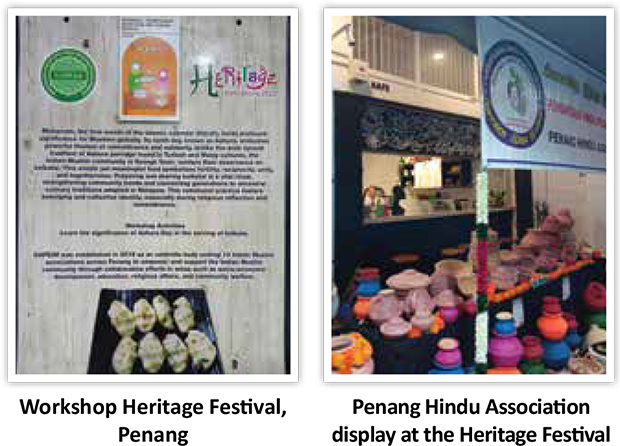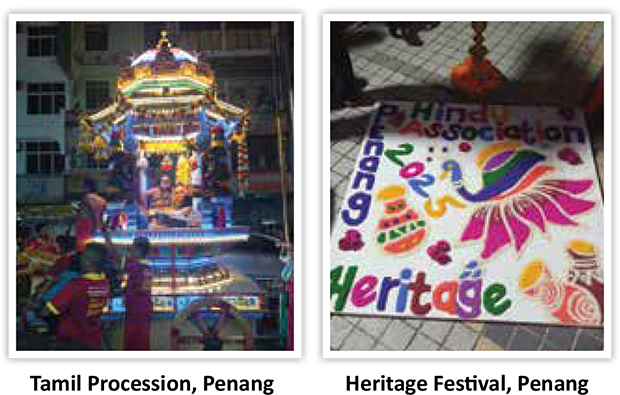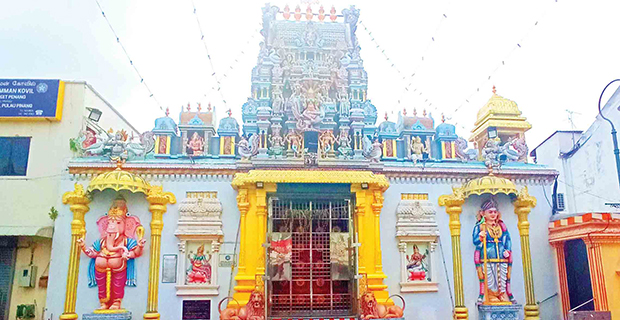A Bridge Between Diasporas
Raksha Daryanani Thani finds unexpected kinship, flavours, and cultural belonging during her journey to Malaysia‘How about a trip to Penang and Kuala Lumpur in July? I think you’d love it,’ said my mum on a call in February this year.‘Malaysia sounds fun. But would it mean no home food?’ I asked.‘I wouldn’t say that. The place has lots to offer,’ she said.

I was drawn to a depiction of a woman with a parrot in her right hand, sculpted on the facade of a shrine near the caves, and asked the pandit about her. His enthusiasm was boundless. ‘She’s known as Shri Andal, one of the Tamil poet-saints of South India, and a devotee of lord Vishnu. She’s the only female among the saints and she’s fond of parrots. In South Indian temples housing her idol they make a new parrot from flowers and leaves for her every day. “Andal” means affection in Tamil,’ he said. The ornithophile in me was pleased to learn how my culture honours a love for animals.
During the last four days, I attended my first, traditional Punjabi wedding. At the maiyan, women from the community sang Punjabi shagna de geet while family and friends applied haldi to the bride in her home. The bride’s mother stepped over the rangoli seven times, made a paste from the rangoli, and used it to leave three handprints on the wall of their house afterwards.

The bride’s aunt clarified the significance of these rituals. ‘Beta yeh shagun hain.’ (This is considered auspicious). ‘We don’t know if they follow this tradition anymore in India but Malaysian Punjabis still do,’ she said. The sangeet ceremony was filled with sithniyaan and tappe sung accompanied by dholis. A serene anandkaraj ceremony followed at a gurudwara in the city, where the couple and sangat were reminded not to take photos with their back to the guru granth sahib by the amritdhari Sikh. I was amazed when the bride began her wedding speech with, ‘First of all, I’d like to thank Waheguru…’
Unlike many diaspora communities, I concluded that Malaysians hadn’t lost touch with their traditions, language, and religious practices. They’d kept their sense of home alive. There was so much to learn from them as diaspora members. As for me: I had unexpectedly found similar flavours, community, and the warmth of folded hands by travelling here. I had also learnt new words, expanded my cultural knowledge, and met kind, hard-working people. I knew I’d be back for this feeling of home in Malaysia whenever I missed it, not as a stranger but with a profound sense of ‘Andal’.











Comments.